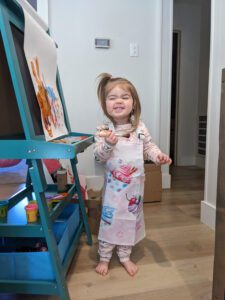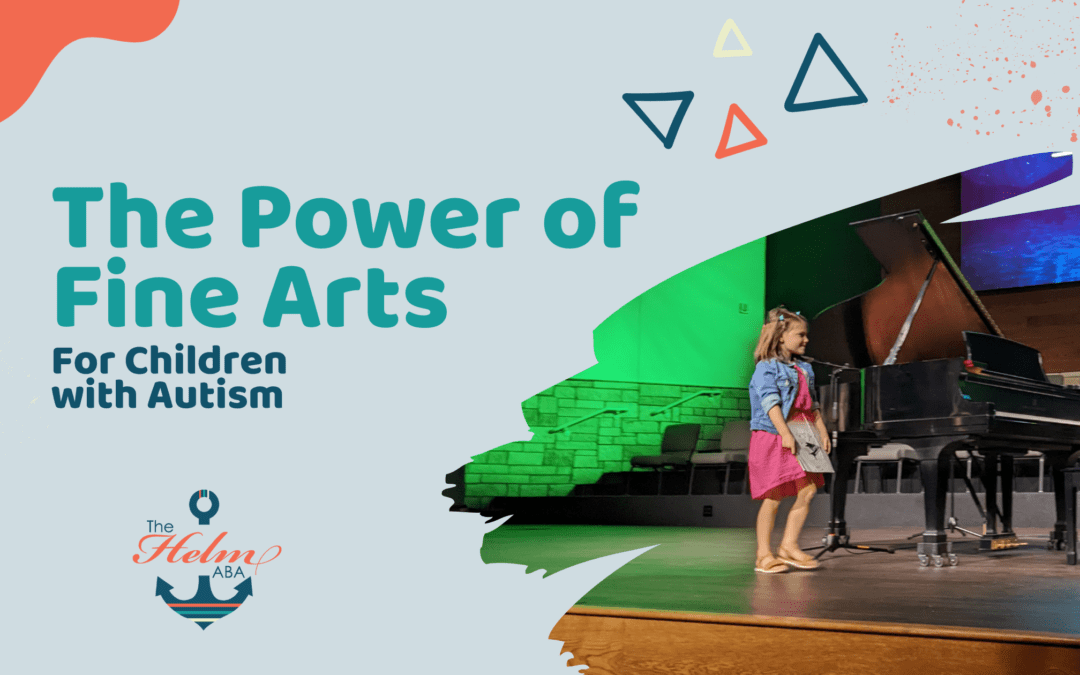At The Helm ABA, we’re passionate about harnessing creativity to empower children with autism. Fine arts, including visual and performing arts, offer incredible benefits that go beyond mere expression. Join us as we explore how these artistic avenues positively impact children with autism, fostering growth, development, and meaningful connections.
The Impact of Visual Arts
Visual arts provide numerous benefits for children with autism, including:
- Developing critical thinking skills by stimulating cognition.
- Allowing meaningful self-expression through various art forms.
- Cultivating creativity and abstract thinking.

- Improving perceptual skills and spatial awareness.
- Enhancing fine motor skills through hands-on activities.
- Facilitating non-verbal communication and social interaction.
- Providing a therapeutic outlet for stress and anxiety.
- Promoting discipline and focus through artistic practice.
The Impact of Performing Arts
Performing arts also offer significant advantages for children with autism, such as:
- Enhancing higher-order thinking skills like problem-solving.
- Fostering focus and social interaction through group activities.
- Developing communication skills through rhythmic expression.
- Stimulating cognitive function and brain connectivity.
- Promoting holistic brain development and integration.
- Encouraging collaboration and teamwork.
- Cultivating social skills such as turn-taking and sharing.
- Improving coordination and motor control through rhythmic movements.
Fine arts play a crucial role in empowering children with autism, providing them with avenues for self-expression, social interaction, and skill development.
You may be asking yourself, how can I get my kiddo involved in fine arts? Here are some options:
- Nothing formal – just grab some paint brushes and paper or help them to recreate their favorite movie with things lying around the house. The beauty of the fine arts is that there is no right or wrong and no one way to do anything. So don’t worry about how it gets done, just that it gets done. Any exposure is good!
- School is cool – most school districts in DFW take great pride in their Fine Arts programs. If your kiddo is in middle school or above, sign them up for a theater, music, or art class next year. Many also offer Special Education arts classes that are smaller, have more support, and with slightly modified curriculum so all students can be successful.
- Community – Form a club that meets once a week with families like yours where all the kiddos can get together and have some fun. Paint one week, sculpt the next, and sing after that. Again, it doesn’t have to be a formal thing.
- Ask professionals – There are TONS of great fine arts groups out there. From Dance to Art to Theater, there are lots of studios dedicated to children’s exploration of the arts. While they may not currently offer exactly what you are looking for, most of these places have flexible curriculum. Generate enough interest, and we can all but guarantee they will do what they can to accommodate.
At The Helm ABA, we’re committed to nurturing creativity and unlocking the full potential of every child we serve. Join us in celebrating the transformative impact of fine arts on children with autism and their journey towards growth and fulfillment.

